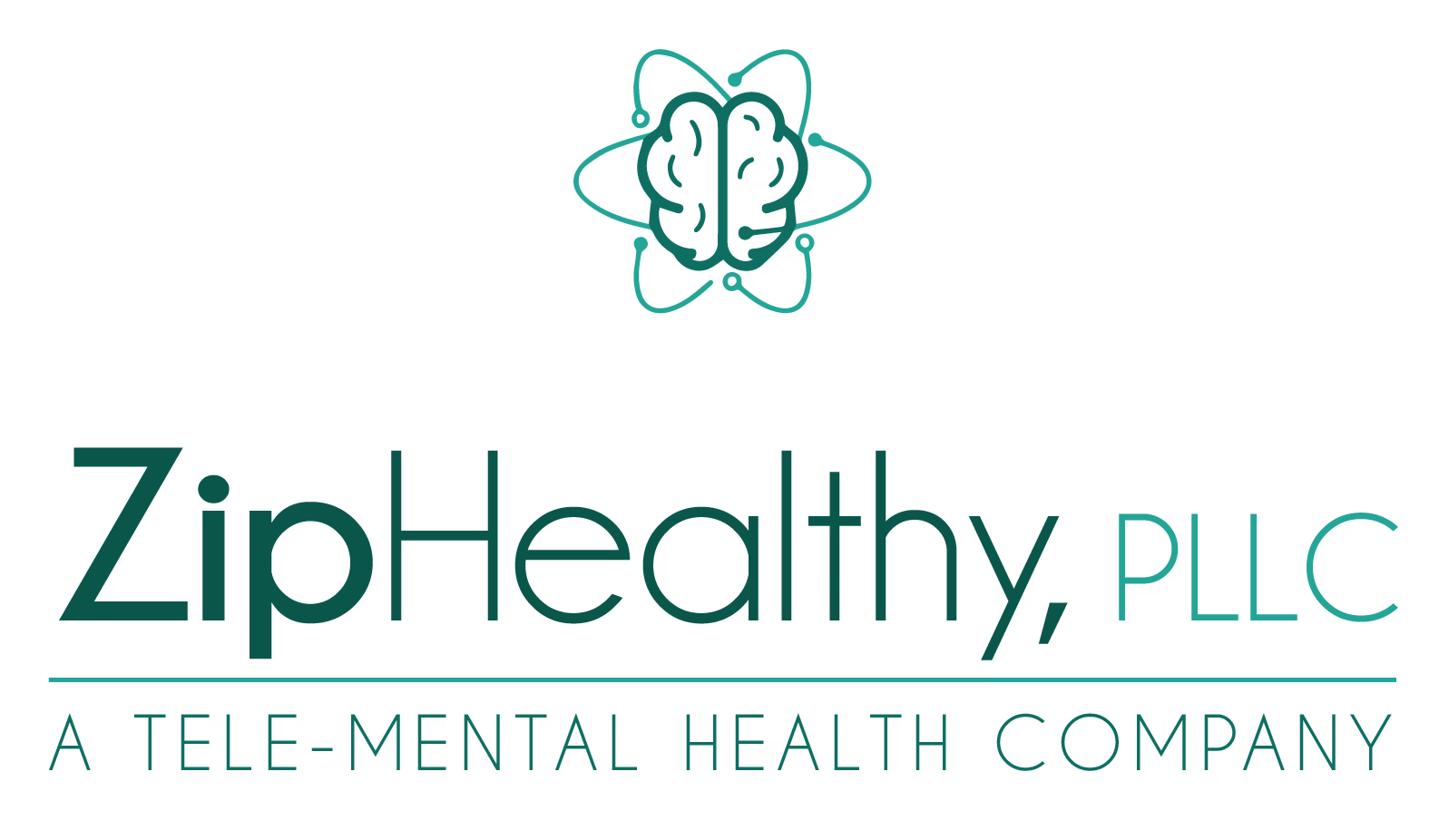Have you ever found yourself suddenly overwhelmed by emotion in response to a seemingly innocuous comment, situation, or even a specific word? You may have encountered what mental health professionals call an emotional trigger.
At ZipHealthy, we work with clients throughout Northwest Arkansas—including Bentonville, Rogers, Centerton, Cave Springs, and Pea Ridge—to understand and manage these complex emotional responses. This research-based guide will help you identify your personal trigger words, understand their origins, and develop effective coping strategies.
What Are Emotional Triggers?
According to research published in the Journal of Traumatic Stress, emotional triggers are stimuli that evoke intense, often uncomfortable emotional responses based on past experiences. These triggers can be words, phrases, situations, or sensory experiences that activate your body's stress response system.
Emotional triggers often operate below the level of conscious awareness. Research from the field of neuroscience shows that the brain processes triggers in the amygdala—the emotional center of the brain—often before the prefrontal cortex (responsible for rational thought) can interpret the situation.

This is why trigger responses can feel automatic and overwhelming; they literally bypass our rational mind's initial filtering system. Studies conducted at Harvard Medical School demonstrate that the amygdala can respond to potential threats within milliseconds, while conscious processing takes hundreds of milliseconds.
Common Types of Emotional Triggers
While triggers are highly individual, research from the American Psychological Association has identified several categories that are particularly common:
1. Verbal Triggers (Trigger Words)
Certain words or phrases can evoke strong emotional responses based on their association with past experiences. Research in cognitive psychology shows these verbal triggers often connect to:
- Criticism - Words that suggest inadequacy or failure
- Rejection - Language that implies abandonment or dismissal
- Judgment - Terms that feel evaluative or condemning
- Control - Phrases that suggest limiting autonomy or choice
- Shame - Words that evoke feelings of unworthiness
Examples might include phrases like "you always," "you never," "you should," or specific words that carried emotional weight in past experiences.
2. Situational Triggers
Research published in the Journal of Anxiety Disorders identifies common situational triggers:
- Interpersonal conflict - Arguments or tense interactions
- Feeling disrespected - Experiences where boundaries are violated
- Public speaking - Performance situations with evaluation
- Crowded spaces - Environments with limited personal space
- Specific locations - Places associated with difficult memories
3. Relationship Triggers
Studies in attachment theory have documented relationship-based triggers:
- Abandonment cues - Signs that suggest someone is pulling away
- Trust violations - Situations that resemble past betrayals
- Criticism from loved ones - Negative feedback from close relationships
- Feeling misunderstood - When important people miss your emotional needs
The Science Behind Emotional Triggers
Research in neuroscience provides valuable insights into why we react so strongly to emotional triggers:
The Neurobiological Basis
Studies using functional MRI scanning, published in the journal Biological Psychiatry, show that when triggered:
- The amygdala becomes highly active, initiating the stress response
- The prefrontal cortex (responsible for rational thought) shows decreased activity
- The body releases stress hormones including cortisol and adrenaline
- Heart rate, blood pressure, and respiration increase
This neurobiological cascade explains why our reactions to triggers can feel so overwhelming and why logical thinking becomes difficult in these moments.
Memory Consolidation and Triggers
Research from the field of memory consolidation helps explain how triggers form. When we experience emotionally significant events, particularly those involving distress or trauma, the brain forms stronger memory connections due to the release of stress hormones. This creates what researchers call "emotional memory networks."
Later, when we encounter a stimulus that resembles elements of that original experience (even in ways we're not consciously aware of), these memory networks can activate, creating an emotional response that feels connected to the present moment but is actually rooted in past experience.
Identifying Your Personal Emotional Triggers
Self-awareness is the first step toward managing emotional triggers. Research in mindfulness-based interventions demonstrates that recognizing your triggers can significantly reduce their impact. Here are evidence-based approaches to identifying your personal triggers:
Self-Reflection Exercise
The American Psychological Association recommends this journaling exercise:
- Recall 3-5 recent situations where you felt a strong, seemingly disproportionate emotional reaction
- For each situation, write down:
- What was happening just before you became upset?
- What specific words or actions seemed to initiate your reaction?
- What emotions did you experience?
- How did your body feel during this reaction?
- What thoughts were going through your mind?
- Look for patterns across different situations
Common Patterns of Emotional Triggers in Northwest Arkansas
In our practice serving Bentonville, Rogers, Centerton, Cave Springs, and Pea Ridge, we've observed certain regional patterns in emotional triggers that may be helpful to recognize:
- Work-life balance pressures - Many professionals in Northwest Arkansas's growing corporate sector experience triggers around performance expectations and time management
- Cultural transition challenges - As the region becomes more diverse, triggers related to cultural identity and belonging are common
- Community comparison - The varying socioeconomic landscapes across NWA communities can create triggers around social status and perception
Strategies for Managing Emotional Triggers


Research published in the Journal of Clinical Psychology demonstrates that with the right techniques, we can learn to manage our responses to emotional triggers effectively:
1. Mindfulness Practices
Studies from the University of Massachusetts Medical School show that mindfulness meditation can help create space between trigger and response. Key techniques include:
- Body scan meditation - Systematically bringing awareness to physical sensations
- Breath awareness - Using the breath as an anchor during triggering situations
- S.T.O.P. technique - Stop, Take a breath, Observe your experience, Proceed mindfully
2. Cognitive Restructuring
Research in Cognitive Behavioral Therapy shows we can learn to identify and challenge the automatic thoughts that accompany triggers:
Thought Record Exercise
- Identify the triggering situation
- Note your emotional response and intensity (0-100)
- Write down automatic thoughts that occurred
- Identify evidence that supports and contradicts these thoughts
- Develop more balanced alternative thoughts
- Re-rate your emotional response after considering the alternative perspective
3. Grounding Techniques
Studies in trauma treatment have validated several grounding techniques for managing intense trigger responses:
- 5-4-3-2-1 technique - Name 5 things you can see, 4 you can touch, 3 you can hear, 2 you can smell, and 1 you can taste
- Temperature change - Hold an ice cube, splash cold water on your face, or take a warm shower
- Physical grounding - Feel your feet on the floor, press your hands against a wall, or hold a weighted object
4. Self-Compassion Practices
Research by Dr. Kristin Neff at the University of Texas has demonstrated that self-compassion significantly reduces emotional reactivity to triggers:
- Self-kindness - Speak to yourself as you would to a good friend
- Common humanity - Recognize that emotional triggers are part of shared human experience
- Mindful awareness - Observe emotions without judgment or suppression
Need Help Managing Emotional Triggers?
Our trained therapists at ZipHealthy understand the complexities of emotional responses and can provide personalized strategies for navigating difficult emotional states.
Schedule a Consultation Today

When Trigger Responses May Indicate Something More
While emotional triggers are a normal part of human experience, research from the American Psychiatric Association indicates that certain patterns may suggest underlying conditions that could benefit from professional support:
- Post-Traumatic Stress Disorder (PTSD) - When triggers consistently produce flashbacks, nightmares, or dissociation
- Anxiety Disorders - When trigger responses include panic attacks, persistent worry, or avoidance behaviors
- Depression - When triggers consistently lead to prolonged low mood, hopelessness, or social withdrawal
- Borderline Personality Disorder - When triggers cause extreme emotional volatility and intense relationship difficulties
If you're finding that emotional triggers are significantly impacting your daily functioning, relationships, or quality of life, professional support can make a meaningful difference. At ZipHealthy, our Licensed Certified Social Workers throughout Northwest Arkansas are trained in evidence-based approaches for addressing the underlying causes of trigger responses.
Conclusion: The Path Forward
Understanding and managing emotional triggers is a journey rather than a destination. Research in psychological resilience shows that with consistent practice of the techniques outlined above, many people experience significant improvements in their ability to respond to triggers with greater emotional regulation.
The work of identifying and addressing emotional triggers is deeply personal and often requires both self-reflection and professional support. At ZipHealthy, we work with clients across Northwest Arkansas to develop individualized approaches to trigger management based on the latest research in emotional regulation.
Remember that experiencing emotional triggers doesn't mean something is wrong with you—it means you're human. With evidence-based strategies and compassionate support, you can develop a healthier relationship with your emotional responses and experience greater freedom in your daily life.
References:
- American Psychological Association. (2023). Emotional regulation: Strategies for managing triggers. APA.org.
- van der Kolk, B. A. (2014). The body keeps the score: Brain, mind, and body in the healing of trauma. Viking.
- Neff, K. D., & Germer, C. K. (2018). The mindful self-compassion workbook. Guilford Publications.
- Kabat-Zinn, J. (2013). Full catastrophe living: Using the wisdom of your body and mind to face stress, pain, and illness. Bantam Books.
- LeDoux, J. E., & Pine, D. S. (2016). Using neuroscience to help understand fear and anxiety: A two-system framework. American Journal of Psychiatry, 173(11), 1083–1093.
